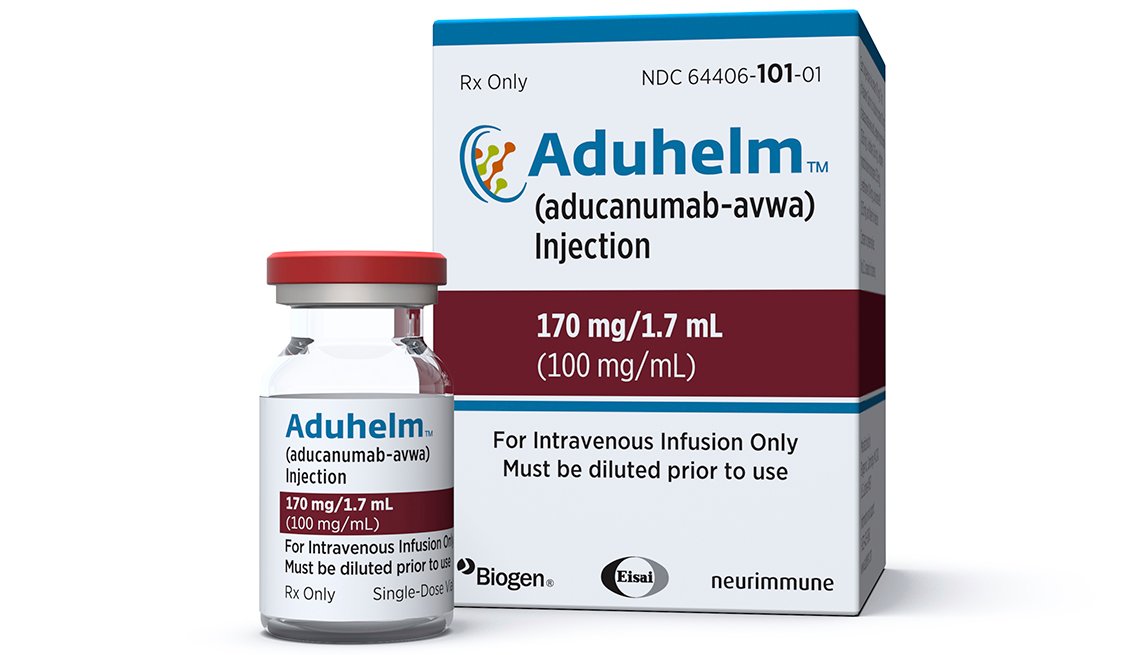Health Links
 Kaiser Health News: Paying Billions for Controversial Alzheimer’s Drug? How About Funding This Instead?
Kaiser Health News: Paying Billions for Controversial Alzheimer’s Drug? How About Funding This Instead?
Aduhelm, a new Alzheimer’s drug approved by the Food and Drug Administration last month, could be prescribed to 1 million to 2 million patients a year, even if conservative criteria were used, according to Biogen and Eisai, the companies behind the drug. The total annual price tag would come to $56 billion if the average list price, $56,000, is applied to the lower end of the companies’ estimate. That’s a huge sum by any measure — more than the annual budget for the National Institutes of Health (almost $43 billion this year). Yet there’s considerable uncertainty about Aduhelm’s clinical benefits, fueling controversy over its approval. The FDA has acknowledged it’s not clear whether the medication will actually slow the progression of Alzheimer’s disease or by how much. more »
 Kaiser Family Foundation: FDA’s Approval of Biogen’s New Alzheimer’s Drug Has Huge Cost Implications for Medicare and Beneficiaries
Kaiser Family Foundation: FDA’s Approval of Biogen’s New Alzheimer’s Drug Has Huge Cost Implications for Medicare and Beneficiaries
"The question of what would happen when a new, expensive prescription drug comes to market for a disease like Alzheimer’s that afflicts millions of people has loomed large in discussions over drug prices in the U.S.— and now we’re about to find out. After a nearly 20-year dry spell in new treatments for Alzheimer’s disease, the Food and Drug Administration (FDA) just approved a new Alzheimer’s medication, Aduhelm (aducanumab), developed by Biogen, with an expected annual price tag of $56,000. While the scientific community debates the evidence of the effectiveness of this new drug, the FDA’s decision raises hope for Alzheimer’s patients and their families, along with serious cost concerns for patients and payers, particularly Medicare." more »
 GAO Report: Maternal Mortality and Morbidity: Additional Efforts Needed to Assess Program Data for Rural and Underserved Areas
GAO Report: Maternal Mortality and Morbidity: Additional Efforts Needed to Assess Program Data for Rural and Underserved Areas
There's a greater risk of maternal death during pregnancy or soon after from pregnancy-related causes among rural residents, according to the Centers for Disease Control and Prevention. CDC and the Health Resources and Services Administration fund programs aimed at reducing maternal mortality, including in rural or underserved areas where it can be harder to get health care services. These agencies collect data — like the percentage of women receiving postpartum visits — but don't always separate and analyze this data for rural and underserved areas. We recommended they do so to help ensure program funding helps those in need. more »
 From Medicare: Protect Yourself - If Someone Contacts You to Buy or Sell a Vaccination Card, It's a Scam; Key Things to Know From the CDC
From Medicare: Protect Yourself - If Someone Contacts You to Buy or Sell a Vaccination Card, It's a Scam; Key Things to Know From the CDC
From the CDC: COVID-19 vaccines are safe and effective. You may have side effects after vaccination, but these are normal. It typically takes two weeks after vaccination for the body to build protection (immunity) against the virus that causes COVID-19. You are not fully vaccinated until 2 weeks after the 2nd dose of a two-dose vaccine or two weeks after a one-dose vaccine. COVID-19 vaccines are more widely accessible. Everyone 16 years and older is now eligible for a COVID-19 vaccination. Find a COVID-19 vaccine. People who have been fully vaccinated can start to do some things that they had stopped doing because of the pandemic. more »






